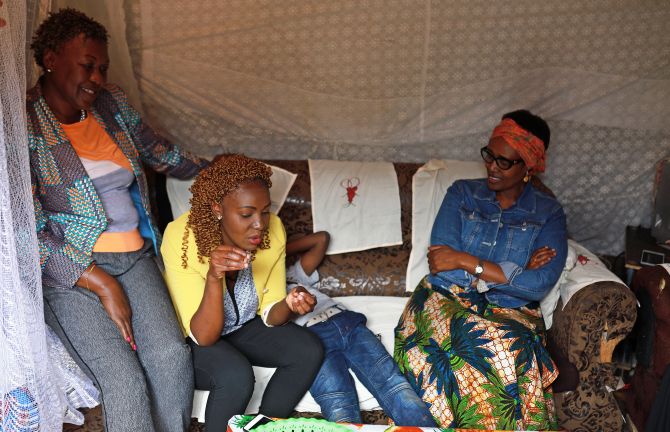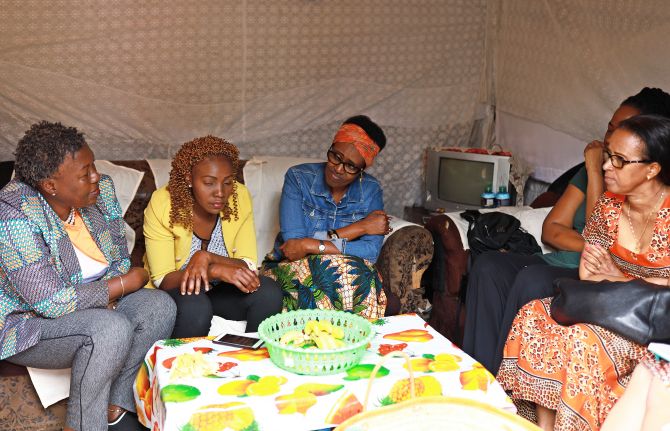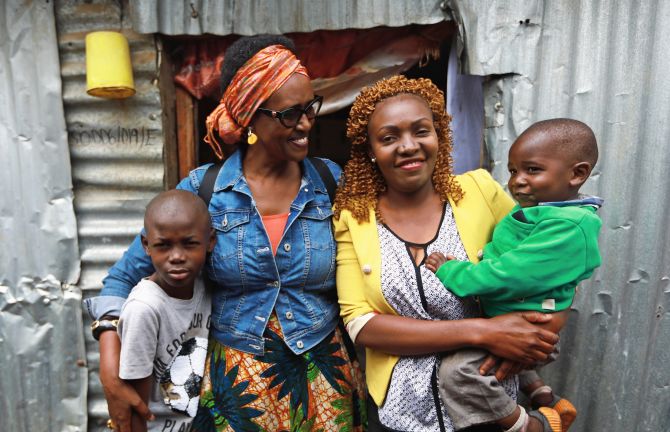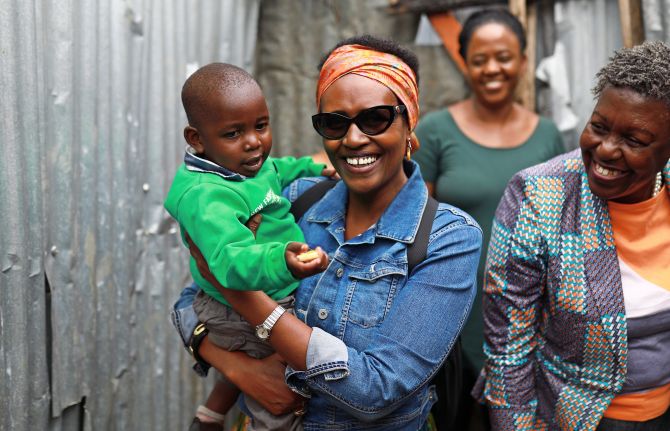




Update
Women are leading the response to HIV in their communities
25 November 2019
25 November 2019 25 November 2019Juliana Atieno volunteers in her local health facility as a mentor mother, providing advice and support to pregnant women newly diagnosed with HIV. She is also a passionate advocate for survivors of gender-based violence and works to ensure that they receive the support and care they deserve, including by linking them to HIV prevention and treatment services.
Ms Atieno, who is 29 years old and a survivor of gender-based violence, was diagnosed with HIV as a teenager, in 2008, when she was already very ill. She was linked to treatment immediately and today she is healthy and the mother of two young boys, aged two years and nine years, both born free of HIV. Her partner is also HIV-negative. The family lives in the Kiambiu informal settlement, near Nairobi.
On the eve of the launch of UNAIDS’ new report, Power to the people, Ms Atieno told the UNAIDS Executive Director, Winnie Byanyima, how much her work means to her.
“I love my work encouraging young women and girls to get tested for HIV, to take treatment if they need to and to adhere to it so that they can stay healthy and give birth to babies free of HIV,” she says. “I tell them not to worry, that if I made it through, then they can too.”
Women and girls like Ms Atieno are the backbone of care support in their families and communities, providing unpaid and often undervalued work in caring for children, the sick, the elderly and the disabled and underpinning fragile social support systems. The involvement and leadership of women like Ms Atieno is critical in the response to HIV.
“Whenever I meet women like Juliana, I am moved and inspired by their courage and resilience,” said Ms Byanyima. “It’s clear that when women like Juliana have power and agency, real and positive change flows to their families and to their wider communities.”
Ms Byanyima’s meeting with Ms Atieno coincided with the beginning of the 16 days of activism campaign against gender-based violence.



